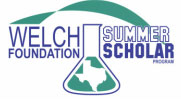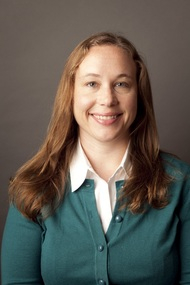 Lauren Webb, Ph.D.
Lauren Webb, Ph.D.
Department of Chemistry, University of Texas at Austin
Executive State Director, Welch Summer Scholars Program
WSSP UT-Austin Site Director
Lauren J. Webb is an Associate Professor of chemistry at The University of Texas at Austin. She obtained her A.B. in chemistry (music minor) from Bowdoin College in 2000. She entered graduate school at the California Institute of Technology supported by a National Science Foundation Graduate Research Fellowship and earned her Ph.D. in chemistry in 2005. She did her graduate work in the laboratory of Dr. Nathan Lewis, where she studied chemical and electronic properties of functionalized silicon(111) surfaces. From 2005 to 2008 she was a NIH NRSA postdoctoral fellow in the laboratory of Dr. Steven Boxer in the Department of Chemistry at Stanford University. Her research focused on quantifying electro- static fields in proteins using vibrational Stark effect spectroscopy. Dr. Webb moved to UT-Austin in 2008, where she has developed a research program based on her training in both surface and biological chemistry. Her research interests are centered on understanding and manipulating the mechanisms of interaction, organization, and self- assembly of biological macromolecules in both natural and artificial environments. She is an Arthur P. Sloan Fellow and the recipient of the Burroughs Wellcome Fund Career Award at the Scientific Interface, the College of Natural Sciences Teaching Excellence Award, and the Iota Sigma Pi Agnes Fay Morgan Research Award.
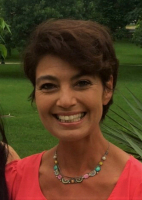 Brenda Baxendale
Brenda Baxendale
Department of Chemistry, University of Texas at Austin
Program Director
Welch Summer Scholars Program
Ms. Baxendale has handled the day-to-day coordination of the Welch Summer Scholars Program since 2017. She has been involved in many areas during over 20 years at the University of Texas including Scholarship Coordinator for the College of Natural Sciences Dean's Office and Administrator of the Texas Interscholastic League Foundation, the scholarship arm of the University Interscholastic League (UIL).
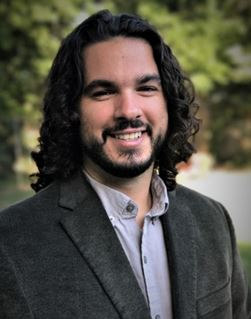 Joshua Crowell, Ph.D.
Joshua Crowell, Ph.D.
Department of Chemistry and Biochemistry, University of Texas at Arlington
Dr. Crowell received his Ph.D. in chemistry from the University of Texas at Arlington in 2015. He joined the faculty at UTA in 2016 and became the WSSP Site Director at UTA in 2019.
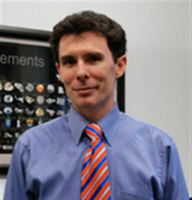 John Gorden, Ph.D.
John Gorden, Ph.D.
Department of Chemistry and Biochemistry, Texas Tech University
Dr. Gorden received his Ph.D. in chemistry from the University of Texas at Austin in 2001. He went on to hold a postdoctoral position at the University of California at Berkeley.
Research in the Gorden group focuses on the rational design of multidentate ligands for the development of new transition metal/main group mediated catalytic reactions as well as the fundamental exploration of organometallic compounds featuring unusual bonding environments and oxidation states. The overarching goal of these studies is to enable correlations to be drawn between structure and the ligand substituents, with an end goal of tailoring and accurately predicting the chemistry of highly reactive metal centers. Such results will have broad ranging significance to coordination chemistry and catalysis and address fundamental questions regarding the nature of bonding and interactions of compounds containing elements in unusual oxidation states.
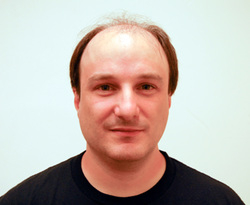 Steve Baldelli, Ph.D.
Steve Baldelli, Ph.D.
Department of Chemistry, University of Houston
Steve Baldelli received his B.S. degree from Framingham State College in Massachusetts in 1992 and his Ph.D. from Tufts University in 1998 under the direction of Mary Shultz. After spending three years at the University of California, Berkeley, with Gabor Somorjai and Phil Ross, he moved to University of Houston, where he is now an Associate Professor of chemistry. He is also a visiting professor at the Royal Institute of Technology in Stockholm, Sweden. His interests center on using linear and nonlinear spectroscopic and microscopic methods to study surface chemistry problems including liquid and solid interfaces of ionic liquids, SAMs, electrochemical interfaces, and problems in corrosion.
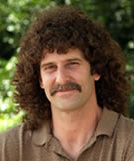 Paul Pantano, Ph.D.
Paul Pantano, Ph.D.
Department of Chemistry, University of Texas at Dallas
Dr. Pantano has been been a site-director of the Welch Foundation Summer Scholar Program since 1997. He is an affiliate of the Alan G. MacDiarmid NanoTech Institute and a principal of the UT-Dallas Bionanosciences Group. His research goals include elucidating the cellular response and fate of carbon nanotubes and advancing the diagnostic and therapeutic applications of carbon nanotubes. His group’s areas of expertise include the characterization of nanomaterials, the reproducible preparation of purified nanotube samples, the assessment of potential nanomaterial cytotoxicity, and the development of label-free measurement of nanotubes inside living cells and tissue.
Dr. Pantano was awarded his B.S. in Chemistry from the University of California at Los Angeles, his M.S. in Chemistry from the California State Polytechnic University at Pomona, and his Ph.D. in Analytical Chemistry from the University of California at Riverside; in addition, he completed postdoctoral fellowships at the Ecole Normale Superieure, Paris and at Tufts University.
